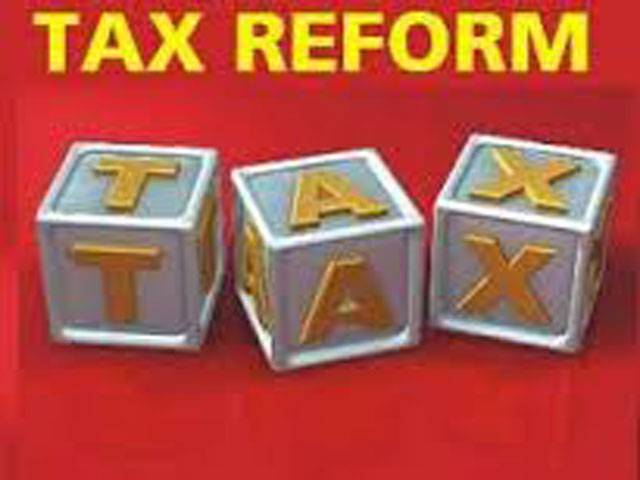ISLAMABAD
Terming Pakistan’s tax to GDP ratio of 9.8 per cent as lowest in the region, the speakers here at a policy engagement workshop called for introducing tax reforms and restructuring taxation system for enhancing the revenues of the country.
The speakers also recommended rationalizing tax expenditures and enhancing greater public investment, especially in power generation and distribution, gas supply, roads etc, for small enterprises. “As compared to tax expenditures it will improve the competitive position of the SMEs relative to the large scale sector and enhance their growth and profitability”, they said. The workshop on tax policy and enterprises development in South Asia was organized by Governance Institutes Network International (GINI) here on Tuesday.
The experts who spoke on the occasion included Rana Muhammad Afzal Khan, Federal Parliamentary Secretary (Finance, Revenue, Economic Affairs, Statistics and Privatization), Daniyal Aziz, Advisor to the Prime Minister, Omar Ayub Khan, Chairman Standing Committee on Finance, Dr Abid Qaiyum Suleri, Senator Nauman Wazir Khattak and Dr Noor Fatima Professor of Economics. Besides, the speakers also proposed to limiting the duration of tax holidays to a maximum of five years. The government, they said has in fact extended it from 5 to 10 years for Special Economic Zones (SEZ), with its negative revenue consequences. They said development of SMEs in Pakistan remains an under-researched area reflective of the policy neglect. The speakers said that constraints to enterprise development relate more to the business environment and lack of access to credit, services (especially electricity and gas), markets, technology and skills.
The taxation system does play a role, albeit a somewhat negative one, recent changes, particularly in the granting of exemptions and concessions, reveal an anti-small enterprise bias and a visible orientation towards big business.
This will aggravate further the competitive disadvantage of small enterprises, added the speakers.
Meanwhile a study conducted by GINI, demonstrates that to the extent that small enterprises fall in the net of taxes like income tax, GST (VAT) or property tax they do not enjoy any significant preferential treatment, except for the presence of exemption limits. In addition, the compliance costs are high, including bribes to tax officials. The report recommends a reduction in the multiplicity of taxes and other charges, simplification of returns and reduction in documentation requirements. Also compliance levels of small enterprises could increase bribes to tax officials. Overall the report has demonstrated the need for development of a comprehensive set of policies to promote SMEs. Such a framework should recognize the difference in constraints faced by small enterprises in different sectors.
At the minimum, tax policy should not discriminate in favor of big business.
This is essential if the growth process has to be made more inclusive and employment provided for the burgeoning youth population. The recently announced Prime Minister’s youth programme is very much a step in the right direction.
Thursday, November 21, 2024
Call to introduce tax reforms for increasing tax-to-GDP ratio

Ishaq Dar chairs meeting on solarization of agricultural tube wells
12:51 PM | November 21, 2024
Bilawal Bhutto urges federal government to reconsider Indus canal projects
12:27 PM | November 21, 2024
Petition filed in LHC against Bilawal Bhutto and Ayaz Sadiq for election act violation
12:06 PM | November 21, 2024
Pakistan to convert 30% of vehicles to electric by 2030: Aleem Khan
November 21, 2024
Iqbal’s philosophy source of inspiration for humanity, says Saif
November 21, 2024
-
Hunger crisis to increase in South Sudan, warns UN
-
Hunger crisis to increase in South Sudan, warns UN
-
Pakistan’s judiciary champions climate justice at COP29 in Baku
-
Punjab struggles with persistent smog as Met Office forecast rainfall
-
Punjab residents face escalating smog crisis as pollution levels soar across country
-
Qatar says Hamas 'no longer welcome' in Gulf state
Land of Vigilantes
November 21, 2024
United in Genocide
November 21, 2024
Finally Fighting Back
November 21, 2024
Digital Stagnation
November 20, 2024
Xi’s Red Lines
November 20, 2024
Independent Supreme Court
November 21, 2024
Fat Loss Fantasy
November 21, 2024
Tackle Corruption Within School Boards
November 20, 2024
To Be Opportunistic
November 20, 2024
Democratic Backsliding
November 20, 2024
ePaper - Nawaiwaqt
Nawaiwaqt Group | Copyright © 2024





